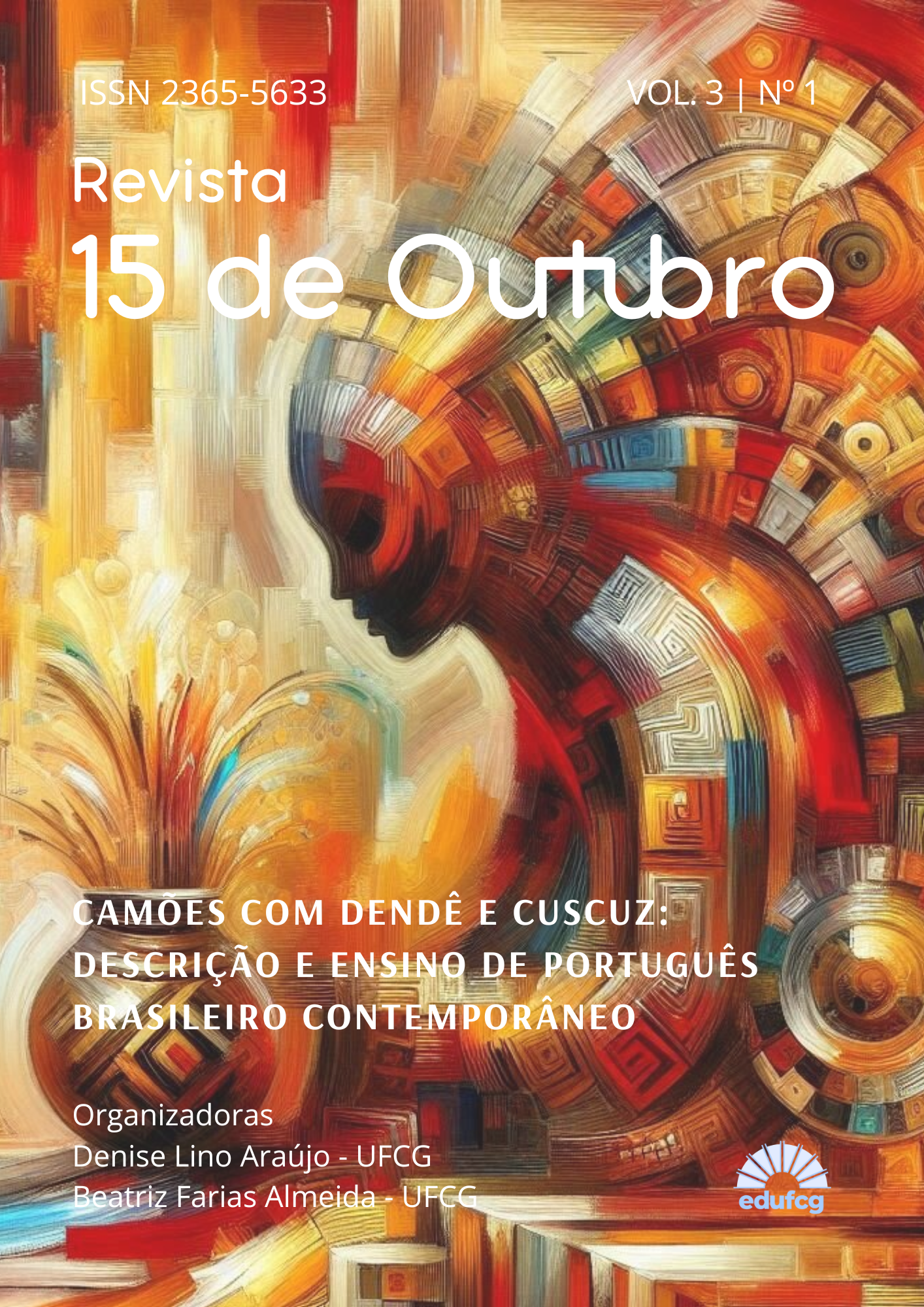O USO DE PRONOMES SUJEITO-OBJETO ENQUANTO TENDÊNCIA DO PORTUGUÊS BRASILEIRO
ANÁLISE E DIDATIZAÇÃO A PARTIR DE MÚSICAS BRASILEIRAS E COMENTÁRIOS DE SEUS VIDEOCLIPES NO YOUTUBE
DOI:
https://doi.org/10.5281/zenodo.14057658Palavras-chave:
Pronomes sujeito-objeto, Português Brasileiro, Músicas brasileiras, Comentários do YouTube, DidatizaçãoResumo
Este trabalho objetiva analisar, em músicas brasileiras e comentários em seus videoclipes no YouTube, o uso de pronomes sujeito-objeto enquanto tendência do Português Brasileiro (PB) em construções com o verbo “deixar” seguido de Infinitivo, assim como apresentar uma proposta de ensino relacionada a tal tema. Para tanto, estabeleceu-se um paralelo entre pressupostos teóricos da Gramática Tradicional e da Sociolinguística, os quais subsidiaram a análise das músicas Deixa eu amar você (Fernando e Sorocaba, 2023), Deixa ela saber (Henrique e Juliano, 2016) e Deixa ele sofrer (Anitta, 2015), assim como de três comentários em seus videoclipes do YouTube. Metodologicamente, quantos aos fins, meios e abordagem, a presente pesquisa classifica-se como descritivo-explicativa, documental e qualitativa. De maneira geral, constatou-se que, nesse contexto, o emprego de pronomes sujeito-objeto em construções com o verbo “deixar” seguido de Infinitivo configura uma preferência de uso entre os cantores das músicas brasileiras contempladas e seu respectivo público-alvo. Além disso, percebeu-se que, embora a norma-padrão a conceba como um erro passível de agramaticalidade por fugir às prescrições gramaticais, tal característica, ao contrário, reflete uma regra própria do PB, dotada de igual funcionalidade, principalmente, quando é atestada sua efetividade de comunicação em contextos reais de uso da língua.
Downloads
Referências
BAGNO, M. Deixa eu dizer que te amo: os pronomes sujeito-objeto. In: BAGNO, M. Português ou brasileiro?: um convite à pesquisa. 4. ed. São Paulo: Parábola Editorial, 2004. cap. 5, p. 109-123.
BAGNO, M. Língua(s) e sociedade no Brasil contemporâneo. In: BAGNO, M. Sete erros aos quatro ventos: a variação linguística de português. São Paulo: Parábola Editorial, 2013. cap. 3, p. 43-71.
BRASILEIRO, A. M. M. Como produzir textos acadêmicos e científicos. São Paulo: Contexto, 2021.
LUCCHESI, D. As duas grandes vertentes da história sociolingüística do Brasil (1500-2000). DELTA: Documentação de Estudos em Lingüística Teórica e Aplicada, v. 17, n. 1, p. 97–130, 2001.
ROCHA LIMA, C. H. da. Gramática normativa da língua portuguesa. 60. ed. Rio de Janeiro: José Olympio, 2022.
Downloads
Publicado
Como Citar
Edição
Seção
Licença
Copyright (c) 2024 Revista 15 de outubro

Este trabalho está licenciado sob uma licença Creative Commons Attribution-NonCommercial-NoDerivatives 4.0 International License.

